Don't wanna be here? Send us removal request.
Text
Not to be that guy but I love love LOVE how Chuuya's backstory is handled in Stormbringer. Fifteen has us thinking that Chuuya is some kind of Naturo-knockoff, god-inside-a-kid deal, and teenage me absolutely loved it, but 22 year old me? Finding out Chuuya's "can't dream", "doesn't remember anything before he was 7", "has never lost a fight ever because he's that powerful" is all a compounding of his trauma? Like damn dude that got to me.
Chuuya clearly dreams. He clearly has nightmares, from the disturbed description of him waking up in the beginning of Stormbringer, but he can't remember what he dreams about. Like, what he went through as a young child is literally so traumatic his brain has to go "nope. not doing that". Trauma makes memories muddled, or sometimes erases them completely. Trauma also makes you feel inhuman, unable to act the way "normal" people are acting, it messes with everything, including, sometimes, the ability to feel fear. Chuuya is reckless because he's been through hell, and doesn't think there could be anything worse than that for him. If he endured that, he can endure anything. He has to, because normal people can't do the same.
So instead of fear, he feels boredom and anger. Boredom because he's numb to any hurt he might recieve, anger because there is a lot going on in this boy's brain, and Chuuya needs to let it out somehow. Compare that to Atsushi, someone who's gone through very similar trauma, whose go-to emotion is anxiety and worthlessness. Chuuya's go-to emotion is the flip-side of that: anger and distrust. He expects to be used and hurt, hence why he let the Sheep do it for so long. Hence why he lashes out at the Flags before they show him the photo, and expects them to betray and hurt him. And doesn't know what to do when he learns that they truly care about him enough to go out of their way to help him.
Trauma also fucks with self-esteem so much, especially childhood trauma. Hence why Chuuya feels inhuman, corrupted, why he doesn't feel like he deserves to be cared for, why he doesn't deserve "such nice things like a heartbeat".
And I love Stormbringer's ending. Because we learn that Chuuya is just a kid. A kid who had parents, went to school, had a home. Who, despite what he went through, is still that same kid that beat up his classmate for insulting his mother. Like, I don't think it would have been as powerful of an ending if Asagiri left his "humanity" up in the air. He's not some "god" or "artificial being", he's just a kid who's been fucked by the inhumanity of war and military research and who's been building a new purpose and narrative for himself ever since.
#nakahara chuuya#stormbringer#great analysis#especially about trauma#and not feeling human because of it#character analysis
2K notes
·
View notes
Text
And I am once again writing about Star Wars not being a child’s sci-fi movie about lightsabers and starships.
Star Wars is, first and foremost, an incredibly well written story that follows a lot of classic storytelling ways (it has all the archetypes, the beginning of ANH is more than famous in many other stories), but also has a lot of unexpected turns and unusual character decisions. It is a story not only about how good defeats evil, it’s a lot more complex than that, but it all boils down to one thing: love. Love is what shatters the galaxy over and over, love is what builds it back up.
Star Wars is a story about friendship, about true, real, never-ending, selfless friendship that leaves a bitter taste in your mouth once lost. It comes back eventually, but it gets ripped out of your heart, leaving nothing but ash at first. It’s about people trusting each other and failing each other, it’s about people hurting each other in horrible ways and betraying each other, and paying for their wrongs. It’s a story about loyalty and the pain of the loss of a friend. It shows very well the deep black hole that is left after you lose a friend. But it also shows how important friendship is, how it ties and saves the universe, how love saves it.
Star Wars is about war. Of course it is. But not only the shiny, glorious side of war. It is also about loss and death and the terrible marks that war leaves on everybody. It’s about regret and pain, and the consequences of peoples’ greed, pride and selfishness.
Star Wars is about the wheels of time rolling slowly. An era comes after an era, but eras aren’t sentient. They don’t change themselves. People do, people make decisions, people lie and love and choose, and then face the consequences. People meet with the chaos that their own vanity and pride bring, people always get punished for the crimes they commit. And many are affected by it, many innocents. That is what the wheels of time crush under themselves.
Star Wars is about faith. Faith in your friends, in your loved ones, in fate and even in your enemies. Faith in yourself. And the lack of faith. And what it can end with, and that it is earned, and that it is essential. The lack of faith made the galaxy collapse, it’s presence saved it. Luke Skywalker had faith in Darth Vader, in a murderer and a monster, and it wasn’t in vain. Because love and faith often aren’t.
Star Wars is about love. It is always about love. It’s about loving enough to let go and loving so much you can’t, and loving to an extent that redeems the irredeemable, and destroys the indestroyable, and kills the unkillable. It is about how love is what holds people together. Love is what made Anakin betray his friends, love is what made Luke save them. Love is what tortures, love is what redeems, it is what brings joy and terror and grief, but also freedom and peace. Star Wars is about how important love is, not in a sugary kind of way, but in a harsh, honest way.
Aliens, starships, lightsabers, blasters, planets and magic are all very important, they make the Star Wars universe interesting and wide. But at its core Star Wars is a story about love, and it is sad that many fans don’t really see it as that.
38 notes
·
View notes
Text
Thinking about. Atsushi being introduced to the story as someone with very strong survival instincts, someone ready to do anything to stay alive. Atsushi who's motto is “all is good as long as I'm alive”. Atsushi who even in Beast too is reported as fearing death more than anything to the point he “became one with death [so that] death will never be able to find [him]”
vs.
Akutagawa clearly having very scarce consideration of his own life, constantly throwing himself in battle and believing that weak people (including himself) deserve to die (“Kill me. Defeat means death”). Akutagawa who had so little consideration for his life he didn't care about dying as long as he took as many people who murdered his friends with him. Akutagawa who doesn't hesitate to send himself in deadly missions because he himself believes if he doesn't suceed in proving himself strong then he deserves to die.
Also thinking about Akutagawa learning the value of life through / because of Atsushi and Akutagawa teaching Atsushi to not fear death
244 notes
·
View notes
Text
“An emptiness so vast I can’t tell if I am in it or it in me.”
— Richard Jackson, from “Elegy Just in Case,” Asheville Poetry Review (2022)
4K notes
·
View notes
Text
A SSKK relationship analysis
And how ‘life’ brought them together.
MAJOR SPOILERS TILL BSD 100!!
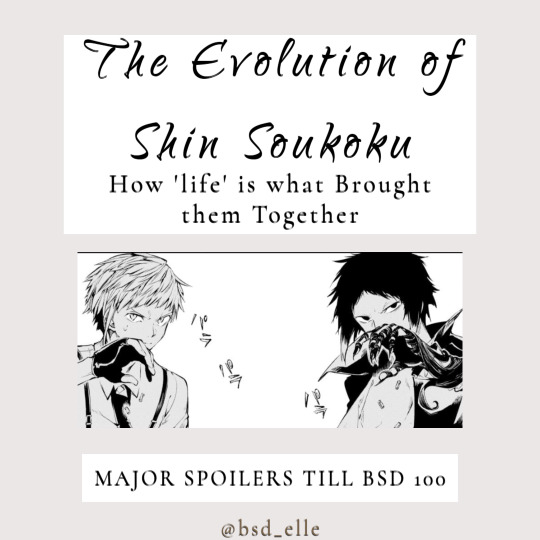
Keep reading
110 notes
·
View notes
Text
i miss when "insane bisexual enemy of the state that the characters found thrown in the dumpster behind a bar somewhere" was a more common supporting character in movies and shows
4K notes
·
View notes
Text
peeta was in love with katniss, his love for her was one of the deepest, but katniss didn't love him, couldn't love him, because she thought she wasn't supposed to love anybody, she thought love was not for her
141 notes
·
View notes
Text


Abandoned Monastery
16K notes
·
View notes
Text
So we have the Shell and One Order for ability weapons now, very well
82 notes
·
View notes
Text
idk i feel like this episode responded to the recent discourse going on about the ADA not caring about dazai, his suicide attempts or his mental health.
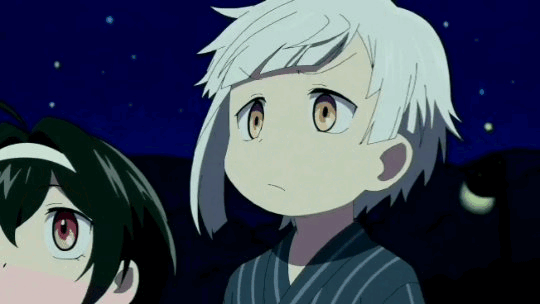
"please don't say that. even as a joke" atsushi truly cares about dazai. he hasn't had many people to care about because he never had a family or any friends. dazai was the first person who ever showed him any kindness. and he looks up to dazai despite his silly antics and reckless demeanour.
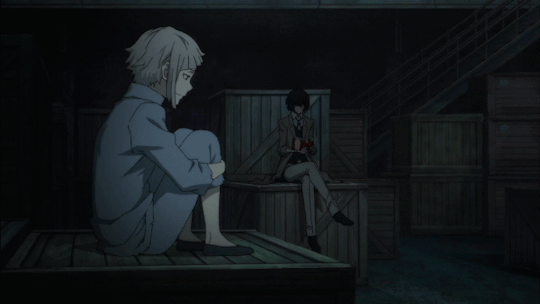
atsushi's view of life might be the polar opposite of dazai's, yet he looks to dazai for hope and strength.
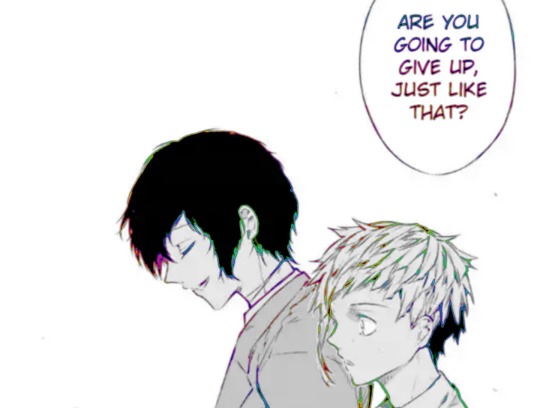
this isn't just because atsushi's a good person, it's because dazai was the first person ever who cared about him and showed him that his life was worth saving and worth living despite not seeing any value in living his own. he taught him to embrace his strength and believe in himself.

and he taught him that its okay to cry.
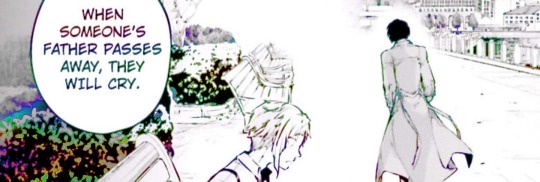
dazai means alot to atsushi. and that's why he chooses to care about him. on purpose he will care about him. despite everything he will care about him.
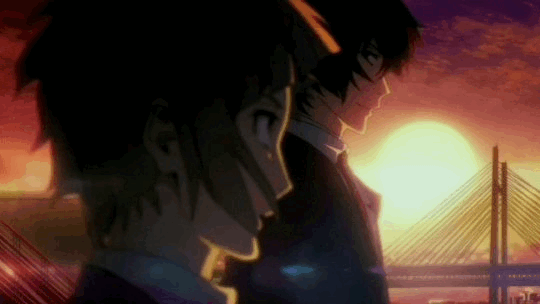
forever, to the stray dogs
2K notes
·
View notes
Text
I like to think about the fact that Dazai was worried throughout Dead Apple about Atsushi thoughts and opinions and how he'll react about how Dazai kinda betrayed ADA
Like at the end of the movie he went straight up to Atsushi to apologise and explain himself but as a cinnamon roll Atsushi is interrupted him and said " you were trying to protect the city"
Maybe...Dazai was worried that Atsushi was gonna leave him and think of him as bad guy? Or maybe Dazai was worried in general that Atsushi would lose hope about him and never trust him at all?
Dazai really wanted Atsushi to be by his side forever and in my point of view don't want him to leave him and leave him all alone since yknow Odasaku gone and he kinda have similarities with Atsushi they both trust in Dazai they wish for him the happiness also they are pushing him to forget about his past




471 notes
·
View notes
Photo


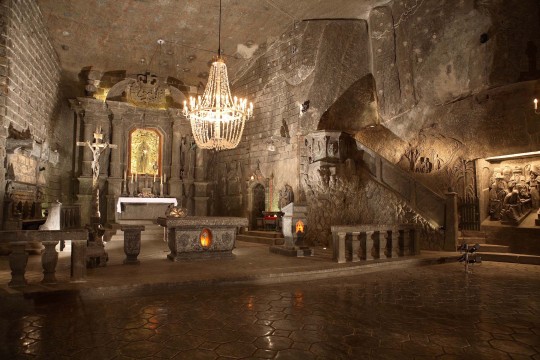
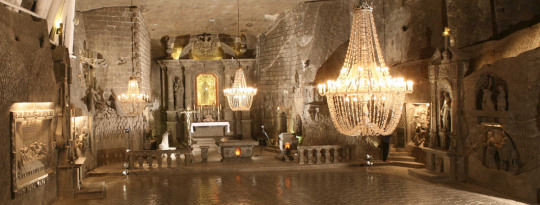

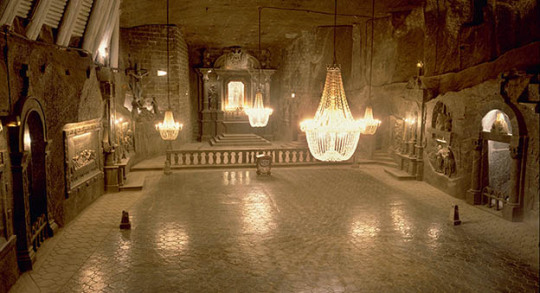



Wieliczka salt mine, Poland
In southern Poland, Lake Wessel lies inky and unmoving in the deep. Filling the bottom of an old salt mine, it’s just one component of the UNESCO World Heritage Site which has been a functioning mine since the 13th century. Featuring supreme carpentry, centuries-old brickwork and ornate salt-crystal chandeliers in cavernous dining rooms, this fantastical setting is a favorite for the Polish film industry. The mine’s attractions include dozens of statues and four chapels carved out of the rock salt by the miners. The older sculptures have been supplemented with new carvings made by contemporary artists. About 1.2 million people visit the Wieliczka Salt Mine annually.
(Source, source)
37K notes
·
View notes
Text
I am so sick of the trend to redeem/rationalize villainous behavior to the point where the audience is expected to sympathize with the bad guy. some people are just evil. some people are just greedy. some people just want to make coats out of dalmatians bc they think it’ll look good on them. wtf is wrong with leaving it at that
26K notes
·
View notes
Text

“You can’t eat ideals.”
The person who suffers the most from Kunikida’s idealism is probably Kunikida himself. We have never seen idealism and perfectionism brilliantly solve a problem in this work. If anything, we can only see ideals on the verge of breaking under the weight of reality and Kunikida who is enduring it. This is the scene after the enemy pointed it out for him. It would be easier if he dropped the burden of his ideals. He would get caught but he wouldn’t die. To drop or not to drop? Between those two choices, however, Kunikida chose this path.


<Bungou Stray Dogs - Chapter 61.5 - Dazaiscans’ translation>
Kunikida is a character with both toughness and fragility that cannot compromise, and that is his charm.
<Asagiri Kafka’s comment on Kunikida Doppo’s character. Taken from the BSD exposition in 2020.>
662 notes
·
View notes
Text

“When I describe Dazai to the staff, there is a phrase that I always use, “an unworldly being with a mental age of two thousand years.” Dazai has far surpassed the mental dimension that human can reach, thus no-one can even tell if the emotions he shows are the real things or not.
There are rare moments when that Dazai shows his very “human” side. That is when he talks to another superhuman who is on the same level with him. The other is when he talks about his old friend who has passed.
This is the scene when Kyouka wondered “Maybe I’m, after all, just a murderer at heart.” and refused to be saved. And Dazai’s reaction to that. When he said “Don’t give me any of that!” here, he really meant it. That was an outburst from Dazai, as a 22-year-old boy, in this scene.”

(Bungou Stray Dogs Chapter 35 - Easygoingscan’s version)
—————————————————————————-
TN: I went to the BSD exhibition in Ikebukuro today and they have Asagiri’s comments on each character and their important scene, that I find very nice so I’m gonna find time to translate them little by little.
1K notes
·
View notes
Text
Akutagawa and Hawthorne
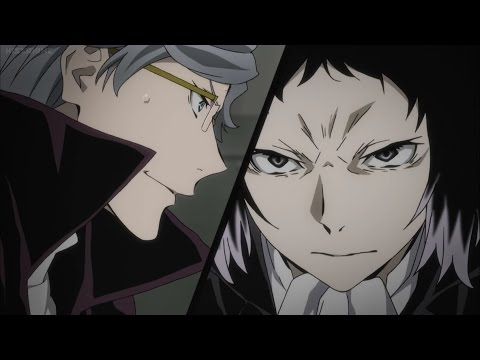
For most BSD fans I am assuming it is obvious after reading The Scarlet Letter why Nathaniel Hawthorne is depicted as extremely religious. The Scarlet Letter’s central themes of sin, knowledge of right and wrong, and the nature of evil are based in Christianity. Akutagawa’s connection to Christianity is more obscure. Take a look at this scene from episode 18:
Akutagawa: This sea breeze is suffocating. Let’s get this over with quickly. Hawthorne: Are you a Port Mafia assassin? Akutagawa: How are you feeling, irmão of the Guild? Hawthorne: Pretty awful. A bit like I’ve had a run-in with diablo spoken of in the Bible. May I ask your name? Akutagawa: Diablo. Hawthorne: Then this must be Mount Hermon. Are you a trial sent to test this humble servant’s faith in God? Akutagawa: Is it a trial you want? Then I’ll give you one! Hawthorne: Do not call me “irmão.” I am a minister, not some relic of ancient Rome! Do not think that will be enough to test my faith, you trash! Repent, little guy of the Port Mafia! Akutagawa: Interesting!
Keep reading
248 notes
·
View notes
Text
“Everything changes when you start to emit your own frequency rather than absorbing the frequencies around you, when you start imprinting your intent on the universe rather than receiving an imprint from existence.”
— Barbara Marciniak (via unbloom)
15K notes
·
View notes